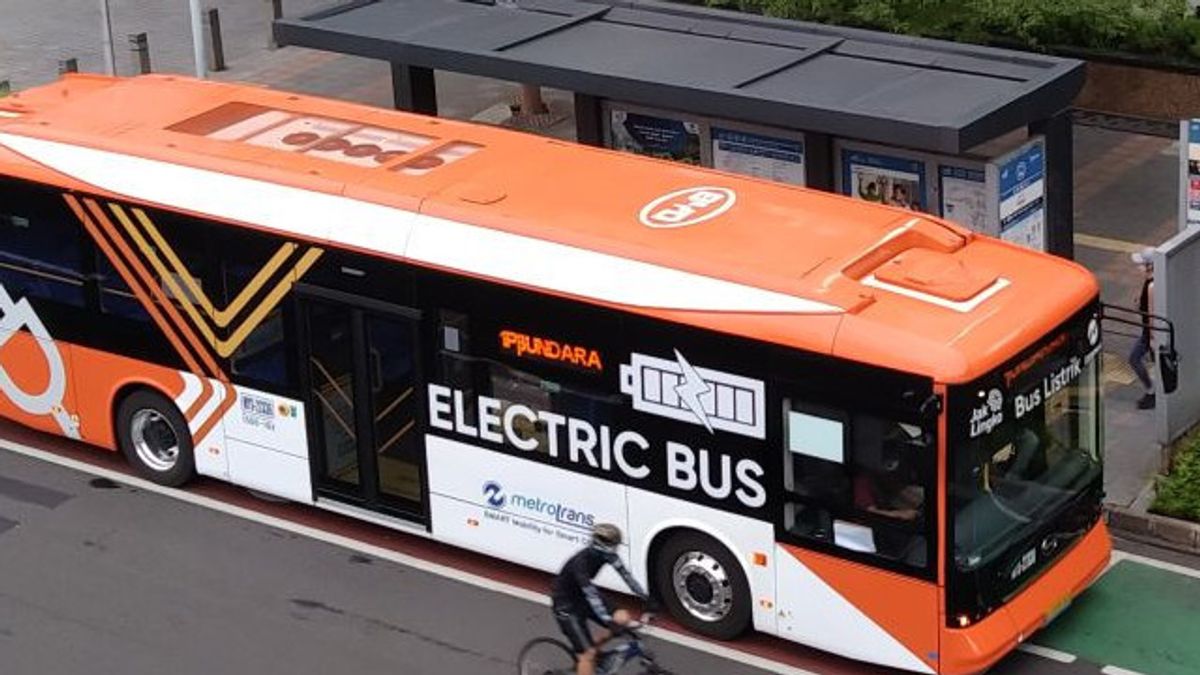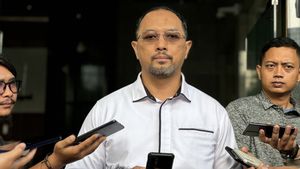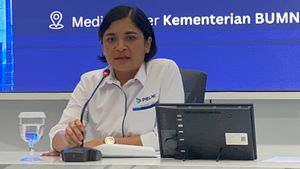JAKARTA - The DKI Provincial Government is intensifying the use of battery-based electric vehicles (KBLBB) in various regions in Indonesia. One of them is through a memorandum of understanding (MoU) between Transjakarta managers and the private sector targeting the use of more than 10,000 Transjakarta buses by 2030.
"This is one of the dreams for the Jakarta government that we are trying to realize," said Head of the Department of Planning and Standardization of PT Transjakarta, Chandra Rakhmat in a workshop organized by The International Council on Clean Transportation (ICCT) with the Committee for Elimination of Regular Gasoline (KPBB) through an official broadcast released by Antara, Saturday, September 24.
Cooperation Analyst of the Energy Conservation Directorate of the Ministry of Energy and Mineral Resources, Supriyadi, said that the government had prepared regulations and strategies to realize plans to accelerate the use of electric vehicles.
One of them is Presidential Regulation (Perpres) No. 55 of 2019. Most recently, there is Presidential Instruction Number 7 of 2022 concerning the use of KBBLB as operational service vehicles, "as well as individual vehicles for the offices of central government agencies and local governments," said Supriyadi.
The DKI Jakarta government has also used electric vehicles on Transjakarta buses which will officially operate in March 2022 with 30 electric buses.
Deputy Head of the DKI Jakarta Transportation Agency, Chaidir, explained that the DKI Jakarta Governor's Regulation contained three low-carbon development commitments.
First, implementing 100 electric buses on the Transjakarta route until the end of 2022. Second, changing half of Jakarta's buses into an electric fleet gradually until 2025.
"Third, will replace the Bus Rapid Transit (BRT) fleet with electric buses by 2030," he said.
In the same year, he said, the DKI Jakarta Provincial Government also signed the Declaration of the C40 Fuel Free Road in 2021 and joined 39 other cities from around the world to realize clean mobility.
The determination of the target implementation of Transjakarta electric buses cannot be separated from the role of partner institutions, including KPBB, ICCT, the World Research Institute (WRI), and the Institute for Transportation and Development Policy (ITDP) which provide technical assistance to ensure the successful adoption of Transjakarta electric buses.
Public transportation in the private sector is also involved in accelerating the use of electric vehicles, and even Bluebird is the pioneer of using electric-based taxis in Indonesia.
Since 2020 with 29 fleets, now Bluebird has continued to increase its fleet with up to 200 electric engines. In 2022, Bluebird will even increase investment by Rp32.5 billion for the procurement of electric cars.
Technical Service Manager of PT Bluebird, Suratmanto said the latest Bluebird electric car is available in Jakarta, Bali, and will expand to Semarang.
Senior Transport Specialist World Bank, Nupur Gupta said, the electric mobility strategy can be integrated with sustainable urban mobility targets and goals. Do not let the strategy for developing electric vehicles be developed individually and separately.
"Because of the traffic jams, road safety and external factors will not be resolved," said Gupta.
Energy Specialist Energy Divideson Southeast Asia Department, the Asian Development Bank (ADB), Florian Kitt said, one of the big problems with the development of electric-based vehicles is the cost.
"The funding will be fully supported by international banks such as ADB and World Bank. We are also trying to move investors, we have discussed that with McKinsey," said Florian.
To encourage the penetration of electric vehicles, the government needs to make roadmaps, including the number of Public Electric Vehicle Charging Stations (SPKLU).
"The key point of this roadmap is that we estimate that SPKLU points are needed per year with a ratio of 10 KLBB: 1 SPKLU," said PLN's Vice President of Tech Development, Trihadimasyar.
The English, Chinese, Japanese, Arabic, and French versions are automatically generated by the AI. So there may still be inaccuracies in translating, please always see Indonesian as our main language. (system supported by DigitalSiber.id)













